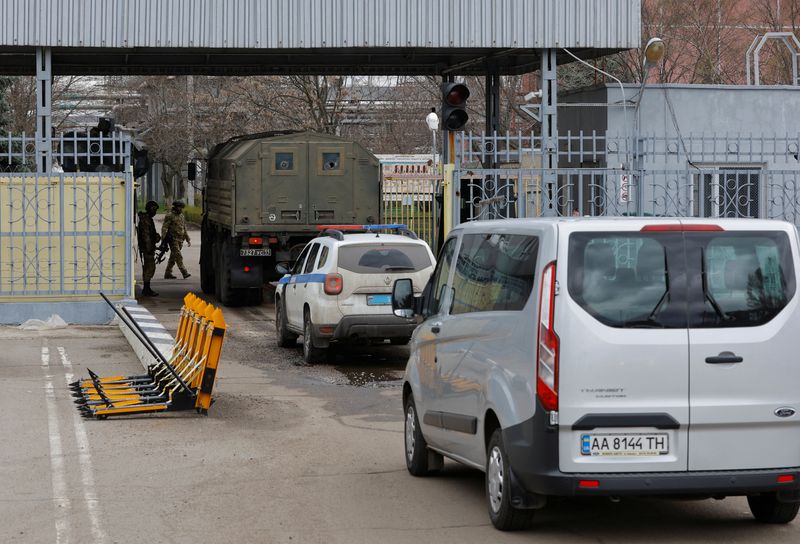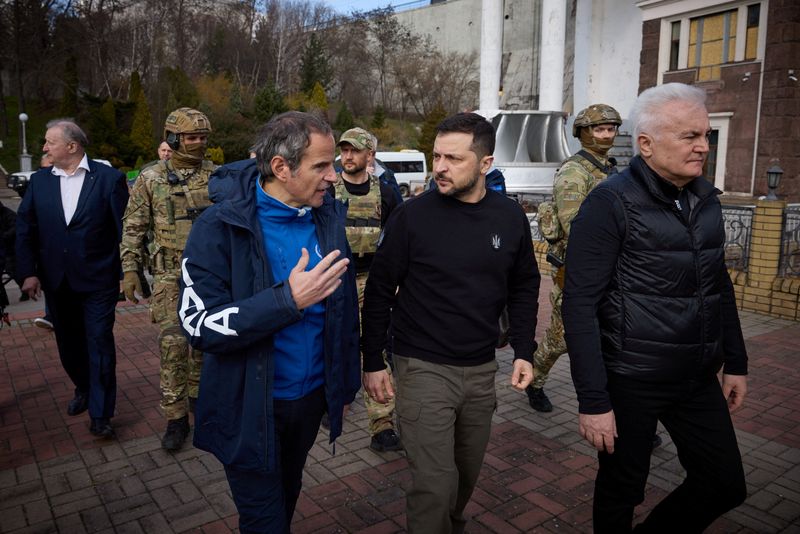(This March 29 story has been corrected to fix an incorrectly transcribed quote in paragraph 9)
By Pavel Polityuk
KYIV (Reuters) - The head of the U.N. nuclear watchdog visited Ukraine's embattled Zaporizhzhia nuclear plant on Wednesday and said he was putting aside plans for a security zone around the facility so he could propose specific protection measures acceptable to both Moscow and Kyiv.
Rafael Grossi, head of the International Atomic Energy Agency, had been pushing for a demilitarised zone at the Russian-held power station, Europe's largest nuclear facility, which has come under repeated shelling.
Grossi, who visited the plant for the second time in less than seven months on Wednesday, told Russian reporters that the situation was not improving. A recording of the briefing was made available to Reuters.
The IAEA head did not name specific safety measures that could be proposed. Russia said in February that it was close to completing construction of protective structures for key parts of Zaporizhzhia, including storage of radioactive materials.
Russian troops seized the facility more than a year ago at the start of the war. Ukraine and Russia have repeatedly accused each other of shelling the plant.
Grossi said he shifted the emphasis of his efforts to enacting specific protection measures acceptable to both sides.
"I think what is important is to make sure there are no attacks. I am trying to put on the table realistic, viable proposals that can be accepted by all," he said.
Grossi said it was no secret there had been a significant increase in the number of troops in the region.
"It is obvious that military activity is increasing in this whole region," he said. "So, every possible measure and precaution should be taken so that the plant is not attacked and can be protected."
On Tuesday Grossi told Reuters he was pressing on with efforts to find a solution.
"I am not giving up in any way. I think on the contrary we need to multiply our efforts, we need to continue," he said.
Grossi on Monday met Ukrainian President Volodymyr Zelenskiy, who has consistently accused Russia of staging attacks in and around the plant as part of "nuclear blackmail".
The sprawling Zaporizhzhia nuclear plant was a prized part of Ukraine's energy network and accounted for around 20% of national power generation before the Russian invasion.

It has not produced any electricity since September, when the last of its six reactors was taken offline.
The IAEA has had monitors stationed at the plant since September, when Grossi travelled to the facility as fears of a potential nuclear accident mounted.
